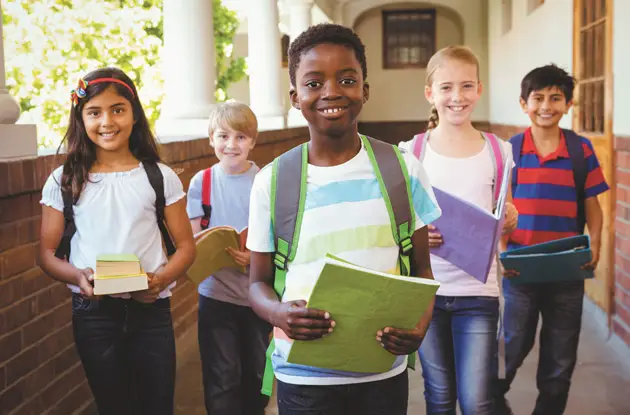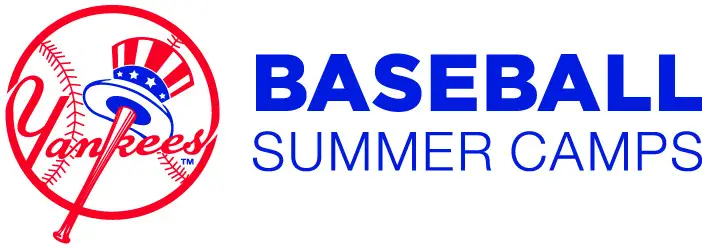Choosing what school to send your child to in the New York metro area can be a complicated decision, one you agonize over for days or even weeks. But what are the differences between parochial, independent, international, charter, magnet, and home schools, and which one is best for your child?
We all worry about whether we’re making the best choices in raising our kids, and one thing most of us fret over is whether our children are getting the best education possible that is suited to their needs. In a lot of areas in the country, traditional district public schools may be the only option for kids. But living in the New York metro area, we are #blessed with an abundance of choices in addition to great public schools, from charter and independent schools, to magnet, international, and Catholic schools.
While one school option doesn’t necessarily provide a better education than another, each type has pros and cons for every individual family. It’s up to you to determine which school setting best suits your child’s needs. Read on to learn more about charter, home, independent, international, magnet, and parochial schools.
Charter Schools
“The most important concept to get is that a charter school is a public school,” says Ian Rowe, CEO of Public Prep Network , a system of three nonprofit charter schools in New York City. But charter schools often have a specific focus, one that typically responds to a need articulated by public school families. Public Prep schools, for example, are all single sex (two schools for girls and one school for boys) and have a focus in STEM education.
As with public schools, charter schools are tuition-free, though students have to apply for admission. Public Prep currently admits students via a lottery system due to high demand.
Charter schools, though, tend to operate with fewer regulations than traditional public schools and can set their own curriculum. But there is typically an accountability system in which charters are evaluated each year to see if they are meeting the outcomes set by the state, Rowe adds. Plus, there is a renewal process every five years to determine whether the charter is able to continue. “So, there is a much greater accountability in return for the freedoms you have to operate as a charter,” Rowe says.
Home Schools
There are numerous motivations for a family to decide to home-school their children, from religious and health reasons to a child’s learning style, aptitude level, or schedule (think child actors). There are also numerous options for home-schooling your child, whether you decide to take the lead in teaching, you enroll him in an online home-school program, such as the George Washington University Online High School , or you join a home-school community, such as Classical Conversations .
Parents who decide to home-school rather than enroll their child in a physical school need to submit a letter of intent, an Individualized Home Instruction Plan, and quarterly reports by specific dates, according to the New York City Department of Education .
Independent Schools
Also known as private schools, independent schools are funded by tuition and charitable donations as opposed to taxpayer dollars. “It is independently funded for the most part and also independent from the state to a certain degree,” says Scott Nelson, headmaster of Rye Country Day School , a college preparatory day school in Rye. “For instance, we don’t follow the NYS testing program (regents testing program), so we have more independence as far as curriculum choices.”
To enroll in an independent school, students have to fill out an application, parents and the student have an interview, and the student has to take an entrance exam, either the Independent School Entrance Exam or the Secondary School Admissions Test, according to Nelson.
Though tuition is a factor in attending an independent school, many offer need-based financial aid. For instance, RCDS offers $5.5 million annually to 16 percent of students, Nelson says.
International Schools
A second private school option, international schools are typically multi-cultural and integrate those different cultures into everyday learning. “We have families who hail from all over the world…and we embrace their backgrounds,” says Emily Benson, director of admissions at International Academy of New York in Manhattan. “We celebrate different times of the year that are holidays for those different cultures, and if we don’t actually make a big celebration about it, we at least discuss it.”
Many international schools are bilingual. IANY, for instance, teaches Mandarin and Spanish, and students spend almost 40 percent of their time interacting in those languages. “When we have a family coming from say Egypt, we might be studying Spanish or Mandarin, but we will ask that child how do you say this in Arabic,” Benson says of welcoming students’ cultures. “We encourage and embrace these other languages and we find that through the way we teach, our children are not only embracing different cultures...but they are also excited to share their home countries’ language and tradition.”
As with other private schools, international schools have an application process, and some require testing while others do not. Many international schools also offer need-based financial aid.
Magnet Schools
Another tuition-free public school option, magnet schools are federally funded by competitive grants from the U.S. Department of Education’s Office of Innovation and Improvement. Over the past few years, the NYC DOE has won funding for 31 magnet schools across 12 districts in NYC , says Todd Levitt, senior director of magnet programs of NYC DOE. Due to the grants, the NYC DOE is able to offer specialized thematic programs, innovative curriculum, and diversified approaches to teaching, and provide professional development, partnerships, residencies, and extra funding to support special programs, he adds.
These 31 schools have a STEAM/STEM component, and each school follows a theme (architecture, civic leadership, and global conservation to name a few). Partnerships are tailored to each school’s individual pursuits and include Columbia University, American Ballet Theatre, Lego, CUNY, NYIT, Apple Education, and Buck Institute of Education Project Based Learning. The grants allow magnet schools to have state-of-the-art technology, purchase new art and science supplies, and provide specialty rooms like broadcast studios and STEAM labs.
Though public schools, the NYC magnet schools have an application process through the NYC DOE Office of Enrollment and the magnet schools, but there is no screening or testing involved in applying. For information about open houses and school tours happening in the fall, email [email protected] [email protected]
Parochial Schools
Catholic schools are private schools that follow a traditional curriculum but with an added religious component. Students enrolled in a Diocese of Rockville Centre school, for instance, are taught in accordance with the New York state learning standards and take the same Regents Exams and SAT as public school students, but learning is infused with a religious curriculum directed by the Diocese, according to Gary Layton, director of marketing and enrollment for DRVC.
“Because we are schools that are run by a religious institution, we take a more holistic view and aim to educate the mind, body, and spirit. It is not just about educating. It is about building character, instilling values. It is about the kindness, the respect they show each other. It is about doing for others through service projects” Layton says.
Though the schools in the Diocese are Catholic schools, teach religion courses, and prepare students for their first Holy Communion and Confirmation, not all students practice Catholicism. Those that don’t practice are required to take and pass religion classes, but are not required to participate in religious events or sacraments.
DRVC requires applicants to fill out admissions paperwork, and there is a “modest tuition” that is typically supplemented by the Diocese and the Parish that runs the school, Layton says.


